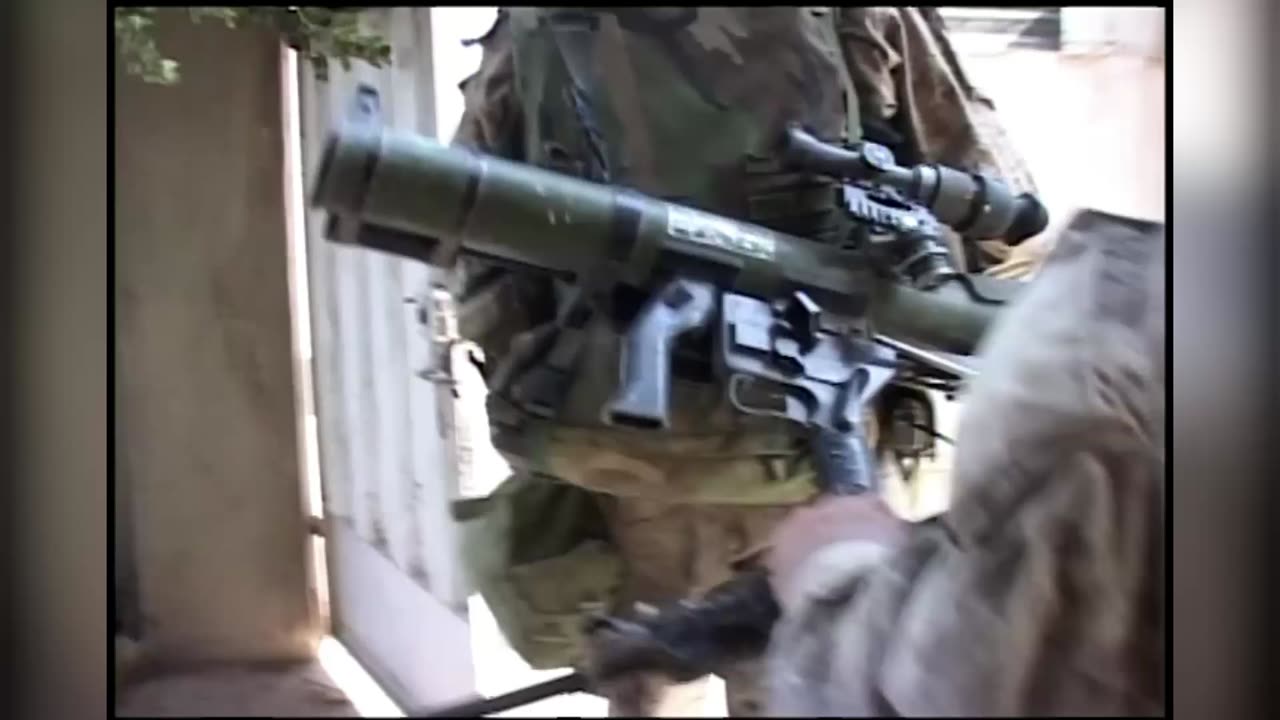Premium Only Content

"In the Thick of it: House Clearing with the Marines in the Battle of Fallujah 2004"
In November 2004, the United States Marines were engaged in one of the most intense urban battles since the Vietnam War—the Second Battle of Fallujah. As they moved through the war-torn city, the Marines faced a deadly and determined enemy, entrenched in the very homes and buildings that lined the narrow streets.
The task at hand was perilous—clearing and searching houses, one by one. Every building could be a fortress, every room a potential death trap. The Marines had to be methodical and precise in their approach, employing a range of techniques developed through years of combat experience.
Before entering a house, the Marines would often use a technique called "dynamic entry." This involved breaching doors with explosives or specialized tools, followed by the use of flashbang grenades—devices that emit a blinding flash and deafening bang, disorienting any insurgents inside. The element of surprise was crucial, as it gave the Marines a critical few seconds to enter and secure the room.
Once inside, the Marines moved in teams, with each member assigned a specific role. The point man, the first to enter, scanned the room for immediate threats. His focus was on any potential enemy fighters, while the rest of the team followed closely behind, securing different sectors of the room. This methodical room-clearing technique, known as "slicing the pie," involved sweeping through each space, covering every angle, and minimizing exposure to hostile fire.
In Fallujah, the insurgents were not just hiding in plain sight—they were burrowed deep within the structures. Marines had to be vigilant, checking for hidden compartments, false walls, and trapdoors that could conceal weapons, explosives, or enemy fighters. This thorough search was known as "deliberate search" and was essential for ensuring that no threats were left behind.
After clearing a house, the Marines would mark it with spray paint—usually a simple symbol or code—to indicate that it had been searched. This allowed other units to quickly assess which buildings had been secured and which still posed a threat. Communication and coordination were vital in the chaotic environment of urban combat.
Despite the ferocity of the battle, the Marines also had to balance aggression with restraint. Not every building harbored insurgents; many were homes to civilians caught in the crossfire. The Marines conducted searches with respect for the local population, offering assistance where possible and working to minimize collateral damage.
The battle for Fallujah was grueling, with each house cleared at a high cost. The Marines demonstrated unparalleled bravery and discipline, navigating the tight, treacherous spaces of the city under constant threat. Their techniques—honed through intense training and real-world experience—were instrumental in their success, but the victory came with a heavy toll.
In the end, the Marines' efforts in Fallujah were a testament to their resolve and skill. They fought not just for control of the city, but for the safety of their comrades and the hope of a more stable Iraq. The memory of their sacrifices, and the lessons learned in the unforgiving streets of Fallujah, will endure long after the dust of battle has settled.
-
 1:33:14
1:33:14
Jamie Kennedy
1 day agoThe LA Fires...
68.1K13 -
 2:01:45
2:01:45
Quite Frankly
1 day ago"Inauguration Eve: Trump Time Travel Review" 1/17/25
54.1K35 -
 58:42
58:42
SGT Report
4 months agoYour REAL NEWS vs. CIA Mockingbird LIES -- Sam Anthony
176K96 -
 2:59
2:59
LimitlessAmbition
1 day ago $11.48 earnedPROVE THEM WRONG With This POWERFUL Motivation!
118K2 -
 8:31:37
8:31:37
G2G Gaming Channel
16 hours agoGive me my Helmet, Im going in!! #RumbleGaming
116K2 -
 4:45:11
4:45:11
MoFio23!
15 hours agoNintendo Switch It UP Saturdays with The Fellas: LIVE - Episode #3
75.5K7 -
 6:23:10
6:23:10
SquallRush
13 hours agoMarvel Rivals Collab
58.9K1 -
 8:36:24
8:36:24
stephengaming94
6 days agofar cry 5 live stream part 3
41.5K2 -
 2:03:28
2:03:28
Barry Cunningham
1 day agoTRUMP DAILY BRIEFING: 2 DAYS TO GO - ARE YOU READY FOR HISTORY TO BE MADE?
71.3K117 -
 13:41
13:41
Tundra Tactical
17 hours ago $11.33 earnedGOA VP Erich Pratt Tells ATF "COMPLY NOW"
90.9K7